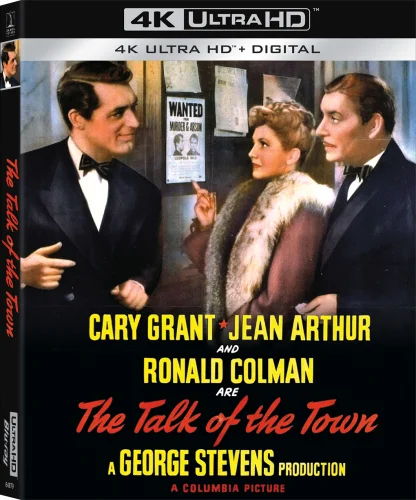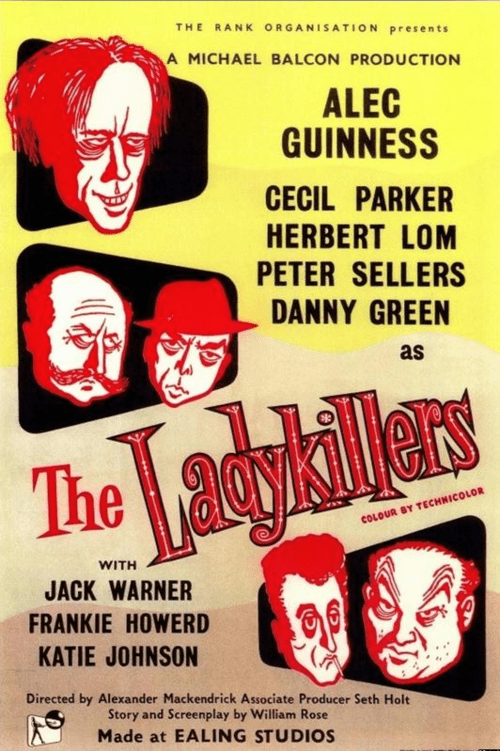Story Movie
When a fire destroys a lumber mill and dispatcher Clyde Bracken dies in the blaze, aggrieved business owner Andrew Holmes accuses his employee Leopold Dilg of arson and murder. Arrested, Leopold escapes from jail and hides out at the home of his pal, schoolteacher Nora Shelley.
The girl is not at all happy about this guest, because the house has been rented for the summer season to Michael Lightcap, a respected law professor awaiting appointment to the Supreme Court who wants to spend the summer working on his writings in a quiet, secluded place.
The teacher in front of the professor passes Leopold off as his gardener, but the professor soon learns the true reason for the lad's stay in the house. In the end, it turns out that the young man became a pawn in the game of corrupt local authorities, and the dispatcher, who allegedly burned in the flames, is alive and well.
Despite all the vicissitudes of circumstances and intrigues, the professor and the fugitive show more and more interest in the pretty mistress of the house, both men are eager to get the hand and heart of Nora, but only the court will put everything and everyone in their places....
Review 4K Movie
The American idiom 'The Talk of the Town' means an event that has been widely publicized, that has become, in fact, what 'the whole town is talking about', a 'town tale'. This is just to say that our distributors, as it often happens with them, regardless of whether they want to attract an additional audience to the movie or just translate it as God wills, screwed up, losing much of the meaning hidden in the original title (another example is the movie with Eddie Murphy, which received a vulgar and ambiguous title 'The Holy Man', whereas 'The Holy Man' is more like 'the blessed one', 'the fool', which defines the essence of the movie). However, 'translation difficulties' often spoil not only the title, but even whole movies.
Thank God, the movie 'Parable of the Tongues' is quite difficult to spoil. This sparkling with great acting, diverse characters, warm humor, moral sparring, ironic, romantic, social tragicomedy has long since passed the test of time and entered the stage where hardly anything can hurt the film at all. A classic, not unreasonably considered a masterpiece.
One of the favorites of the Oscar race in 1943, the film by the venerable director George Stevens remained completely without awards - despite the abundant sprouts in the form of 7 nominations, to reap the harvest was quite different pictures. The main statuette from the tape Stevenson repelled the film of another giant - William Wyler - 'Mrs. Minniver,' and it is not at all in the non-competitiveness of the 'Parable in the Gentiles', filmed in the way the best salon social tragicomedy 30-ies, like 'Mr. Smith Goes to Washington,' this picture in the mid 30-ies could collect all the awards due. But in 1943 all the attention of the public, critics and film academics was focused on the great war raging in Europe and its heroes. It is understandable that localized events, despite the subtlety and grace with which they were shown, did not find the necessary response in the hearts and heads of Oscar 'voters'.
And Stevens told about the small wars for human rights, which were and are waged at all times, and often do not attract much attention, although they should. He told it lightly, with warm irony, with typical Old Hollywood faith in 'this wonderful life' and 'this wonderful law', which, of course, has its own 'costs of production', but with a certain approach - truly democratic and humanistic - it is possible to achieve the very justice that the law, unfortunately, due to its imperfection, often prefers to ignore.
Man to man - who to man? Is it possible to ignore the human factor in an impartial court? Is it necessary to take on faith the facts coming even from the representatives of the law? Is it worth fighting the system? To what extent does the theory of jurisprudence differ from practice? Do emotions hinder or help a fair trial? And what, in the end, is stronger, law or love? The movie tries to answer all these questions in Stevens' characteristic manner of unhurried, attentive to details, told without a single extra word or gesture, as serious as our kitchen discussions of newspaper news.
But the good thing about this movie is not only and not so much that. The unjustly accused hero teaches a life lesson to a professor who has grown a beard of dead and inactive legal theory. The professor, in the name of justice and friendship, changes his views and compromises the principles he was terribly proud of. The cute girl will make both of them seriously change their attitude to life, and the crowd, hungry for bloody spectacles, will be ashamed and pacified. People in this movie learn to talk to each other as for the first time in their lives, to understand each other, to compromise, to listen and hear. And they come to realize that any system devised by man must remain human, listening, taking into account, thinking in private rather than general categories, serving people rather than ideals, and, of course, needs a good purge of personnel.
Stevens, who was considered a 'female' director, for he always gave the leading roles in his films to women, has not changed himself here. Naturally, the duo of Cary Grant and Ronald Colman cannot be called mediocre, but the catalyst for the action here is the endlessly charming, sweet, cute, sunny Jean Arthur, torn between two gorgeous men and making this not at all devoid of serious thoughts film almost airy and very optimistic.
Certainly, charismatic Grant is good, building his role of 'eternal oppositionist' as if from his personal qualities, which the viewer likes. There is something of a boy desperately trying after a painful blow to show that he has nowhere and nothing hurts, and something of true leaders who can easily lead the people. So he is slightly outmaneuvered by Colman, who plays a softer, more tactful character with a great deal of irony to his character, too good, perhaps, to be a lawyer. It is no coincidence that Stevens filmed two endings: in one of them the heroine Arthur stayed with Grant, in the other - with Colman and presented both versions for a test screening. And the audience chose the first option, and in the correctness of their choice (as well as the choice of the heroine) somehow there is no doubt. After all, Colman's character is idyllic, romantic, bookish. Whereas Grant's character is completely earthy and vital, and surprisingly charming.
I was also interested in the appearance of the wonderful Lloyd Bridges - the progenitor of the acting dynasty - in a small but amusing role of a pestering reporter.
It was the last movie Stevens made in this kind of highbrow 'American Dream' style. In 1943 he went to Europe as part of a newsreel group, participated in the filming of the liberation of prisoners of concentration camps Dachau and Duben, preparing materials for the Nuremberg trials, and returned a completely different person. There was no trace of the idealist with a belief in higher justice and the 'Hollywood ending'. His movies became different. But the masterpieces he created later do not harm 'The Parable of the Gentiles', which is still so lovely that it is impossible not to admire it.



 [/full-link]
[/full-link]
 [/full-link]
[/full-link]
 [/full-link]
[/full-link]
 [/full-link]
[/full-link]
